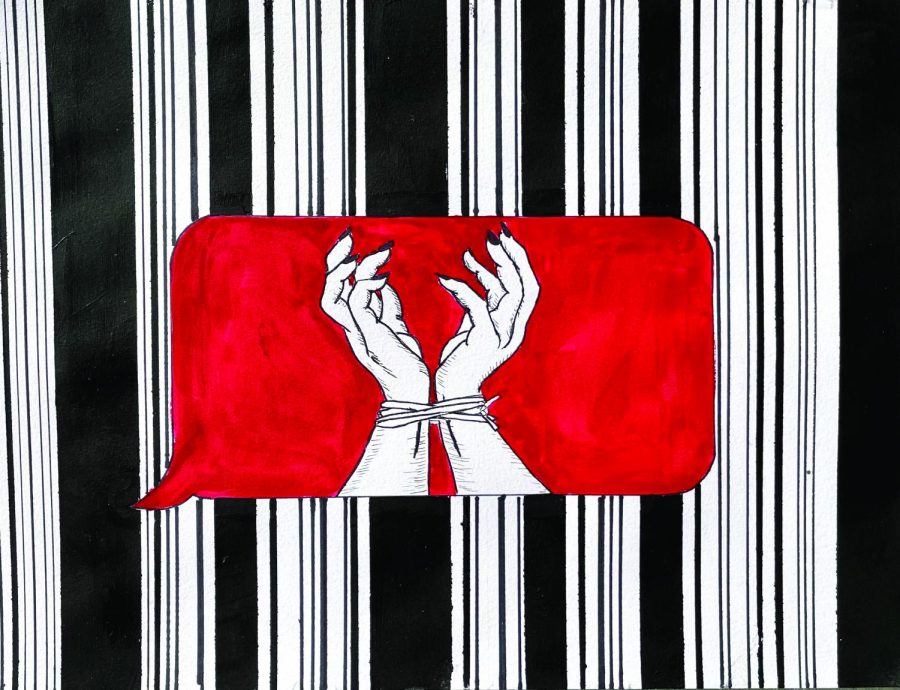Update: On May 18, Republican candidate Donald Trump released a list of potential Supreme Court Justice nominees. To read more about it, click here.
After Justice Antonin Scalia died in February, President Barack Obama appointed a Supreme Court nominee, fulfilling his constitutionally enumerated power; however, tensions continue as the nominee needs two-thirds of the Senate’s affirmation in order to elect him into office. Members of the Senate have not been complying, refusing to meet with the nominee.
Justice Scalia’s death in early February gave Obama his third Supreme Court nomination in his two terms as president. With Scalia, the Roberts Court – the Supreme Court under Chief Justice John Robert’s leadership – had four liberals, four conservatives and a swing vote: Justice Anthony Kennedy. Because Kennedy tends to vote conservative, many people saw the court as having a 4-5 split.
With a new spot available on the court, Obama faced a difficult situation, as Democrats wanted him to lean the court liberally, while Republicans did not want him to nominate anybody at all.
To avoid being accused of partisan and to keep the court balanced, Obama appointed Merrick Garland, a moderate liberal.
Who is Merrick Garland?
Sixty three-year-old Merrick Garland is not new to the politics game. Graduating magna cum laude from Harvard Law School in 1974, Garland clerked for Judge Henry J. Friendly and Justice William J. Brennan. As a federal prosecutor in the Department of Justice, he played a big role in the investigation and prosecution of the 1995 Oklahoma City bombers.
Currently, Garland is on his third year as the chief judge of the Court of Appeals for the District of Columbia Circuit, which he has been a judge on since his nomination by former President Bill Clinton in 1997.
With bipartisan appeal, Garland has received praise from conservatives such as Chief Justice Roberts to liberal groups like the League of Conservation Voters and the American Constitution Society.
In 2010, Tom Goldstein, publisher of SCOTUSblog, said that “Judge Garland’s record demonstrates that he is essentially the model, neutral judge. He is acknowledged by all to be brilliant. His opinions avoid unnecessary, sweeping pronouncements.”
As for his views, many have deemed Garland a “moderate liberal.”
According to Goldstein in a post on SCOTUSblog, Garland is more conservative regarding the rights of criminal defendants, but leans more to the left when it comes to things like freedom of speech and environmental issues.
Though the Republicans’ and Garland’s views may clash, Hockaday History Department Chair Steve Kramer believes that there is a difference between agreeing with someone’s views and being qualified as a Supreme Court Justice.
For example, Kramer experienced this with Scalia’s time in office.
“I didn’t particularly like Scalia,” Kramer said, “but he was definitely qualified.”
President of Hockaday’s Young Democrats Club Aleena Tariq agrees with Kramer’s statement about keeping support for the candidate’s views separate from judgement of qualifications.
“Ideologically, I don’t agree with Garland on everything, but that’s not the point. I think Obama did make a really good choice in order to see the needs of both sides,” Tariq said.
Why is the Senate refusing to take any action?
Within hours after Scalia’s death, Senate Majority Leader Mitch McConnell vowed to not even consider the then unannounced nominee.
And there are three reasons for this. First, the Senate’s Republicans believes that this nomination should be delegated to the next president to choose because Obama is a lame duck president, or a president finishing his last term in office; lame duck presidents are stereotypically regarded as unproductive and unable to make significant change. Second, senators argue that they should give the American people a voice in choosing the justice, and they can do so in 2016 with the election of the next president. Third, they do not want to disarray the current 4-4 split on the court, leaning it liberally.
A brief sentence in Article II, Section 2 of the Constitution, says the president “shall nominate, and by and with the Advice and Consent of the Senate, shall appoint…Judges of the supreme Court.”
This is all that the Senate and Obama have to base their decision upon – how many ways can the Senate interpret and practice “Advice and Consent”?
“Theoretically and traditionally it means that [the Senate] has hearings, vet, then vote in front of the whole Senate for approval,” Kramer said.
So while the Senate is breaking precedented procedure that has been practiced for many years before them, it is not violating the constitution.
Though some have compared this situation to the Senate’s rejection of Judge Robert H. Bork, appointed 29 years ago by President Ronald Reagan, the facts don’t match up: although there was widespread dislike across the Democrats on the Senate, the Senate gave Bork a hearing, and the final vote was 58 to 42.
Nine Supreme Court justices have been confirmed to the Supreme Court since between then and Obama’s last nomination, and now, for the first time in history members of the Senate have announced that they will not even meet with Obama’s nominee.
This has left many Democrats and constitutionalists baffled. Geoffrey R. Stone, Edward H. Levi Distinguished Service Professor of Law at the University of Chicago is one of them.
“The plain and simple fact is that, until now, the Senate has consistently followed a clear, wise and responsible approach to Supreme Court confirmations. In the last half-century, the Senate has confirmed every single nominee who was well-qualified and reasonably moderate,” Stone said. “There is no principled or legitimate justification for the Senate Republicans to suddenly depart from this sensible and well-settled practice.”
President of Hockaday’s Young Republicans club Juliette Turner-Jones disagrees with Stone.
“I don’t think we can blame the Republicans. I think it’s just procedure. It’s politics as usual,” Turner-Jones said.
As D.C. sits in high tensions, Democratic politicians have suggested that Obama bypass the Senate for “not following their constitutional duties.” In an op-ed column in The Washington Post, lawyer Gregory L. Diskant elaborates on this highly controversial topic.
“The president should advise the Senate that he will deem its failure to act by a specified reasonable date in the future to constitute a deliberate waiver of the right to give advice and consent. What date?…90 days is a perfectly reasonable amount of time,” Diskant said.
Others, however, have argued that this would just make things worse between Obama, the Senate and how the American people perceive him.
Lyle Denninston, the National Constitution Center’s constitutional literacy adviser suggested that the president might be subject to impeachment, since the House defines what qualifies as a removable abuse of executive power.
“Where in the Constitution does it say that one branch may define the duty of another branch to use one of its powers by a specified date, or lose that power?” Denninston said in a blog post on Constitution Daily, a blog sponsored by the National Constitution Center.
What does this mean for the Supreme Court, Cases, and the American people?
The Supreme Court still continues to do their job, hearing and deciding on federal cases, but it’s not the same.
With a 4-4 split, the outcome of the cases are predictable, leaving the court with two options for deadlocked cases: They can set the case aside for a reargument with the ninth Supreme Court Justice who, if elected by the next president, will begin his or her work in October. The other option is an automatic reference and affirmance of the lower court decision.
Many cases have already been affected by a 4-4 split, leaving those involved in a sort of jeopardy or test-of-luck game.
For example, before Scalia’s death, Dow Chemical Co. was involved in a class action suit, confident of a victory with a 5-4 split including Scalia’s vote. However, with eight judges on the court, Dow Chemical Co. realized that the vote would be a tie. The appeals court’s decision was against Dow Chemical Co., so the company made a settlement for $835 million.
In reality, the tensions involving Obama, Garland and the Senate have not been considered a big issue by many people. In fact, it may not prove to be a significant factor in the presidential campaigns; Americans consider it too small of an issue for it to affect who they’re voting for. Especially among teens, there has been a lack of interest on this topic.
“I think it should be a pretty big deal to people our age considering that Supreme Court justices have their positions for life,” Tariq said. “The justices now and those elected in the future will make a huge impact on the way we live our lives 10 and even 20 years down the road from now.”
As for Garland, it’s hard to say whether he will be a part of that road or not.
“As qualified as he is,” Kramer said, “I don’t think Garland will ever get to be on the Supreme Court.”
Cheryl Hao – Asst. Castoff Editor













